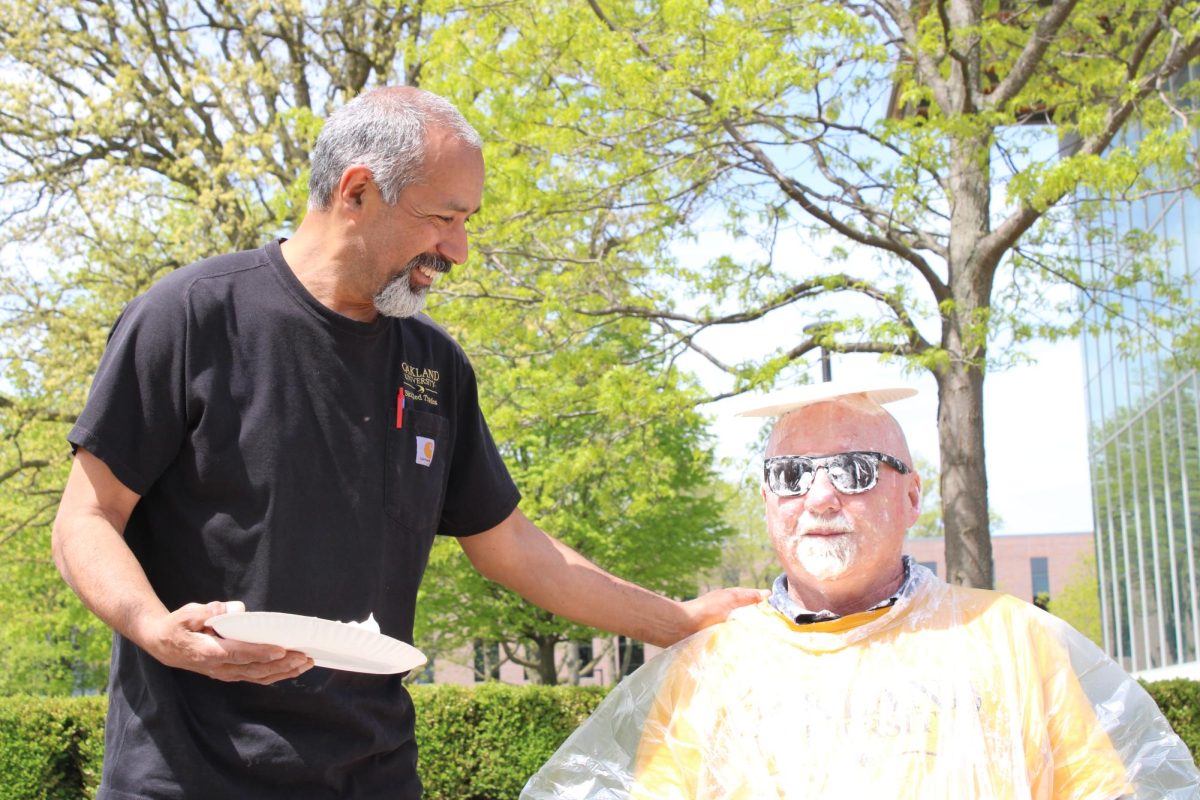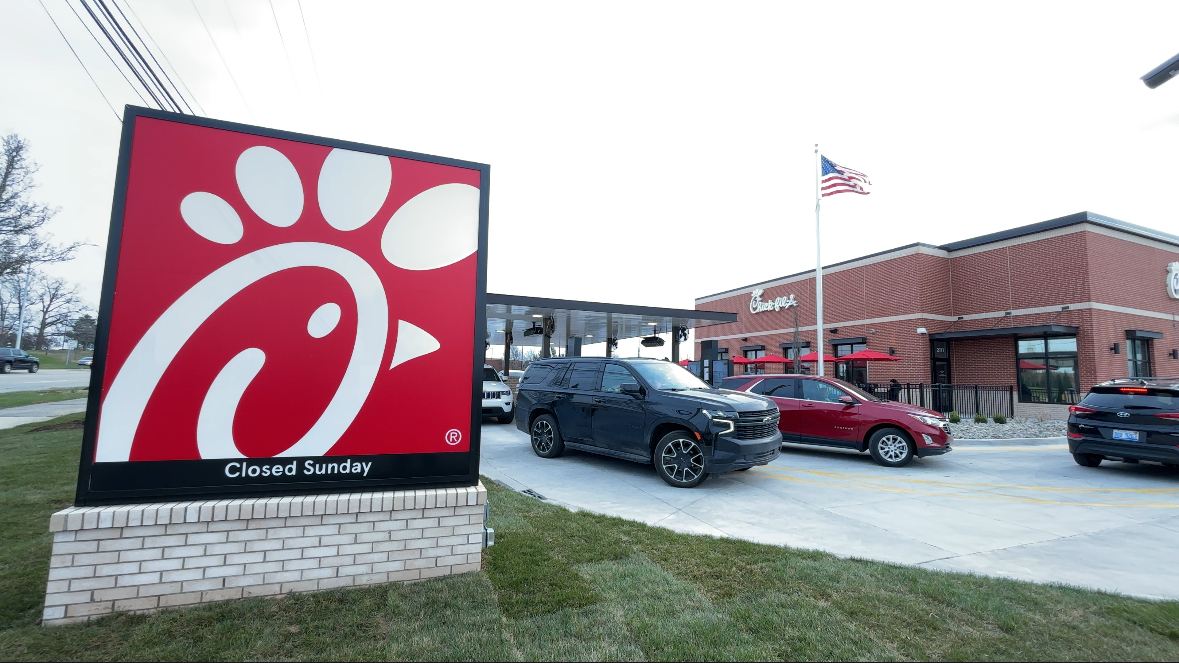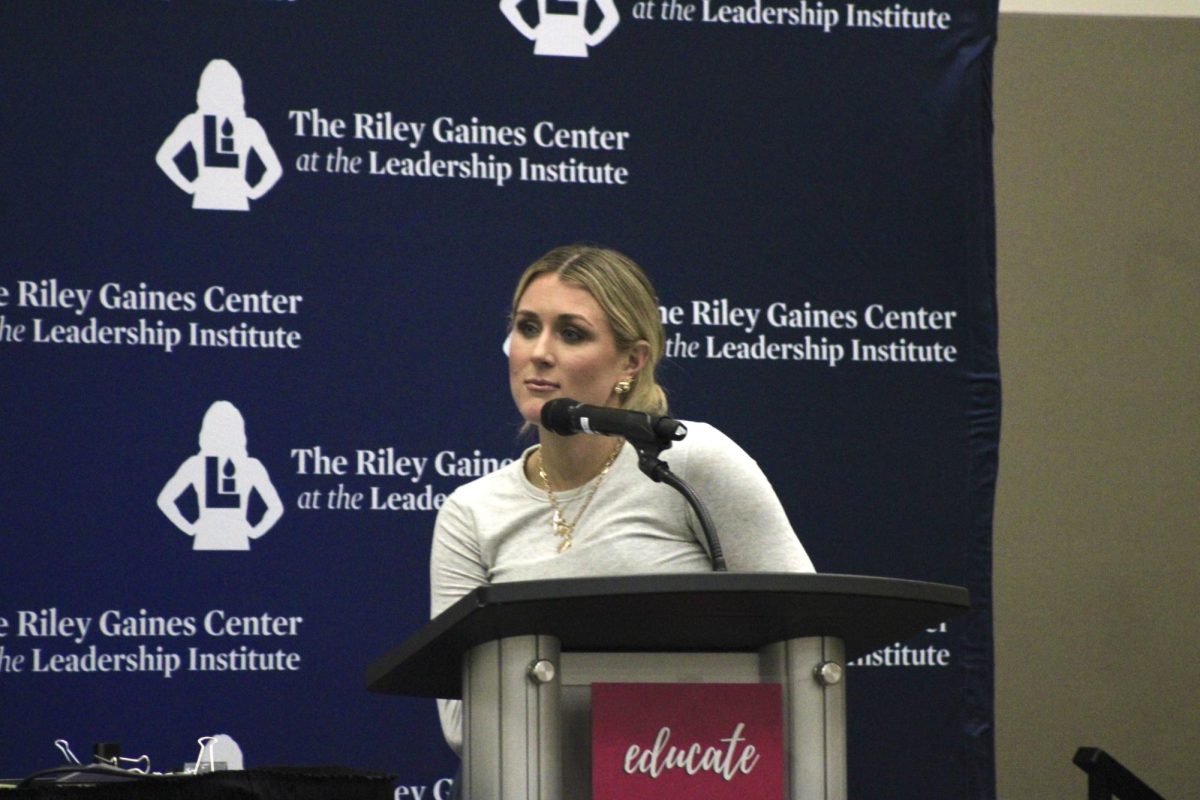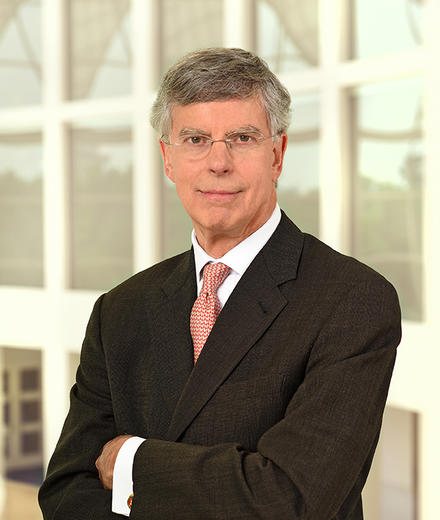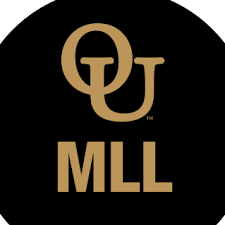
The Department of Modern Languages held a bilingual Career Day at Pontiac High School for English-learning Hispanic students on April 19.
10 Oakland University faculty members and student volunteers gave a presentation and a Q&A session for nearly 70 Pontiac High School students from Mexico, Honduras and Colombia.
Adolfo Campoy-Cubillo, director of the Spanish program at OU, started the event by introducing faculty members to students. Journalism, public relations and human resources professors were some of the speakers.
“We’re working with a lot of the departments at Oakland to help them connect with audiences like this,” Campoy-Cubillo said. “Most of these students are bilingual, but their skills in English are lower, so we help them to communicate with professors.”
After the computer science, social work and political science faculty members finished their elevator pitches, they and a bilingual OU volunteer or faculty member conversed with students.
“There are students that want to do something, but they don’t know exactly what,” Sonia Nieske, Pontiac High School English Second Language (ESL) teacher, said. “When they get information and know students that can talk their language, that’s very important, because they can identify with others.”
10 tables were set up at the high school library, where OU representatives responded to students’ questions regarding majors, career paths, job opportunities and the role of the Hispanic community in different fields.
“We make students aware of the opportunity for them to become bilingual professionals,” Campoy-Cubillo said. “Not only highly skilled in the profession that they choose but also highly skilled in Spanish, which is natural for careers in nursing, social work, psychology.”
With the Hispanic community making up 19% of all Americans the second largest racial or ethnic group in the country, OU faculty and Pontiac administrators recognized the importance of fostering bilingual initiatives in education.
“We have about 250 ESL students from level one, who are newcomers, to level four, those who are more proficient,” event organizer Nieske said. “It is important that all these kids that are newcomers — but also kids that have been in school for a couple of years — know the opportunities they have available.”
“I had some career fairs while in high school, but I never had any career event days that were specific for Hispanics,” Luis Gomez, an electrical engineering student at OU, said. “We live in a very diverse place and part of making sure that we are always inclusive is presenting and delivering information in as many languages as possible.”
Spanish professor Cecilia Saenz-Roby ended the event with general student aid information, SAT and GPA expectations. Saenz-Roby also promoted the Pontiac Promise and similar programs for high school students.
“Pontiac Promise is a special program for the Pontiac area,” Sanez-Roby said. “OU currently has $3 million for the Pontiac Promise. The problem is that people don’t apply for it so that money is left waiting.”
Regardless of the limitations that prevent students from acquiring federal aid or accessing OU scholarships, Campoy-Cubillo reported that progress is being made from almost fifteen years of bilingual involvement in the Pontiac area.
“We are already seeing a growing number of students that come from Pontiac High register at Oakland and start taking classes,” Campoy-Cubillo said. “We have a lot of talent and a lot of potential but in high school, oftentimes students don’t know the opportunities they have. So our job is to come and make them aware of their opportunities.“



